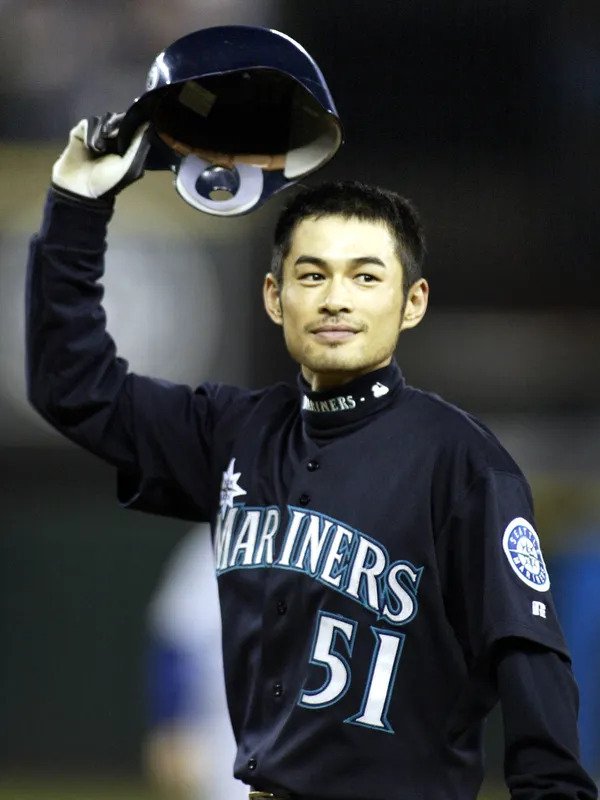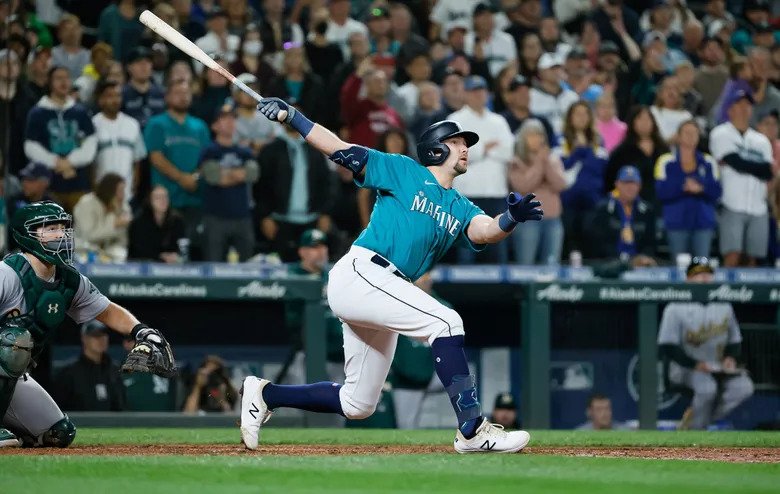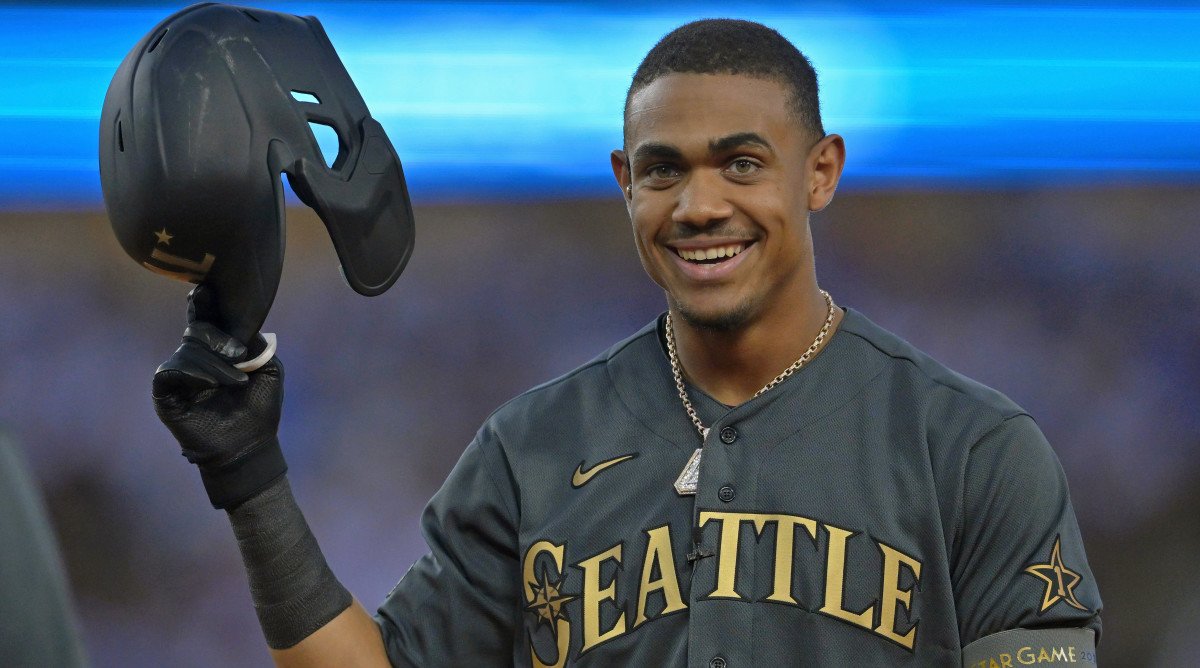The Seattle Mariners finally slay their white whale
By Ryan Jan ‘23
The Mariners celebrate after beating the New York Yankees in the 1995 playoffs. Image courtesy of the Seattle Times.
The Major League Baseball (MLB) playoffs this year had an unfamiliar face.
For 21 years, the Seattle Mariners had missed the playoffs. This gave them the unfortunate honor of being the team with the longest playoff drought in major North American sports. However, over the course of a near-magical season, the Mariners finally made the playoffs this fall, bringing hope once more to the baseball fans of the Pacific Northwest.
Seattle is no stranger to baseball-related misery. From the Mariners’ inception in 1977 to 1991, the team didn’t have a single season with a winning record. However, in the mid ‘90s, powered by Hall of Fame caliber players Ken Griffey Jr., Randy Johnson, Edgar Martinez, and Alex Rodriguez, the Mariners finally became a team that could contend, making the playoffs in 1995, 1997, and 2000. Even though most of that core group had left the team by 2001, the Mariners, then led by rookie Japanese superstar Ichiro Suzuki, won an MLB record-tying 116 out of 162 games that season.
Despite their historic season, Seattle was knocked out of the playoffs in the American League Championship Series, one series short of the World Series. The Mariners are the only MLB team to never have reached the World Series. Instead of a sign of things to come, the 2001 season was a high-water mark. Just as quickly as their emergence in the ‘90s, the Mariners of the early 2000s faded into irrelevance.
Washington native, lifelong Mariners fan, and Catlin Gabel School Athletic Director Tyler Reuter recalled what went wrong.
“We could never get a collection of talent, it was always like we had one player that was incredible,” Reuter said. “That was Ichiro [Suzuki] for a long time, and then Felix Hernandez, the pitcher, for a while, but we never had a collection of players that could get wins and put their talent together.”
After two 93-win seasons in 2002 and 2003, where the team missed the playoffs both years, the Mariners sank to a disappointing 63-win season in 2004. Lost among that dismal win-loss record was Ichiro, who broke the record for most hits in a season, with 262.
Ichiro Suzuki tips his hat to the crowd after breaking the single-season hit record in 2004. Image courtesy of USA Today.
Despite all of the losing, the Mariners remained beloved in Seattle.
“No one really had anything against the Mariners,” Reuter said. “They were this pure, clean, supported team. I don’t know if it was because they lost a lot, maybe some people felt sympathy for them. I feel like the Mariners never had any animosity about anyone on the team, it’s a pretty positive and uplifting team to have in Seattle.”
For Reuter, the worst part of the drought wasn’t missing the playoffs, it was the constant narrative that the Mariners were always rebuilding for the future. “That story was told for probably fifteen years,” he chuckled.
There were also some close calls, with Seattle falling short on the final day of the regular season in both 2014 and 2021. “Things did not go their way and they didn’t make the playoffs, those were brutal losses.” Reuter continued.
Early this season, it looked like the 21-year streak would continue. Two months into the season, in mid-June, the Mariners had a 29-39 record, stragglers in the race for the one of the six playoff spots in the American League.
Then, out of the blue, Seattle started winning. By the midseason break a month later, the Mariners were 51-42, having won 22 of their 25 previous games. They were riding a 14-game win streak, including series sweeps over fellow playoff teams Toronto and San Diego, and most importantly, were solidly in the running for a playoff spot.
After keeping pace for the rest of the way, Seattle guaranteed themselves postseason baseball on September 30 against the Oakland Athletics, when catcher Cal Raleigh hit a walk-off home run in the bottom of the ninth inning. Seattle’s miraculous turnaround had its fairytale ending.
Raleigh hits the walk-off home run that won the game against the Oakland Athletics, sending Seattle to the playoffs. Image courtesy of the Seattle Times.
So, what was different about this year’s team that finally made it to the playoffs?
“It’s a combination of young talent actually starting to produce, and also the Mariners are investing in the now,” Reuter said.
This season saw the emergence of rookie Julio Rodriguez, who made the league’s All-Star team, as well as rookie pitcher George Kirby. Starting pitcher Luis Castillo was also traded for during the season.
The Mariners were also not afraid of rewarding their players with massive contracts, with Castillo staying in Seattle for at least the next five years for $108 million, while Rodriguez could be staying for the next 17 years for a record-setting $470 million. “It’s exciting, they have a collection of talent for once, instead of one or two superstars,” Reuter concluded.
Rodriguez during the All-Star Game in July. Image courtesy of Sports Illustrated.
In the playoffs, the Mariners won the first series against the Toronto Blue Jays, before being swept in the second round by the Houston Astros, including a grueling Game 3 in Seattle, where neither team scored for 17 innings.
Despite their successes, the playoffs showed that the Mariners still had a ways to go before becoming a perennial postseason participant. “Offensively, they still struggled quite a bit, but they have an incredible defense and they have a great pitching staff, which keeps them in,” Reuter said.
Nonetheless, the future looks bright in Seattle. “Now that they have some talent, they have some pieces that they could trade to get some more offensive-minded players.” Of course, the big question is whether or not this success can be sustained. Can Seattle set sail for further playoff appearances? Or will they sink back down into the depths of baseball mediocrity? As the 2001 Mariners demonstrate, it’s impossible to tell for now. But Reuter is optimistic. “I don’t think this year was a fluke by any means,” he said with a smile.




